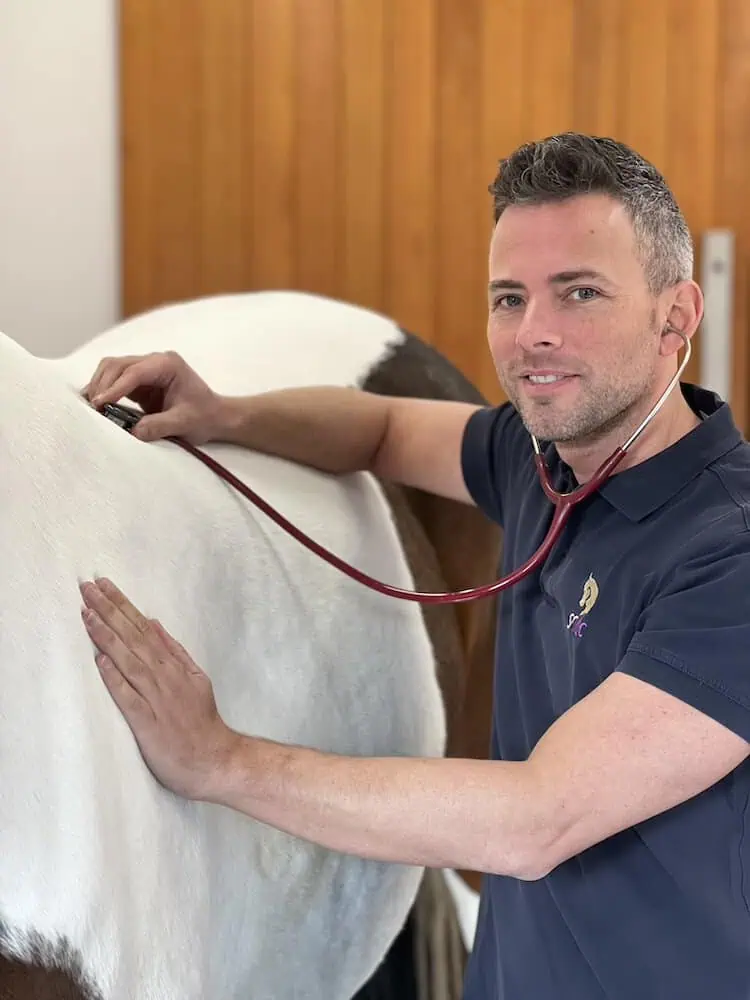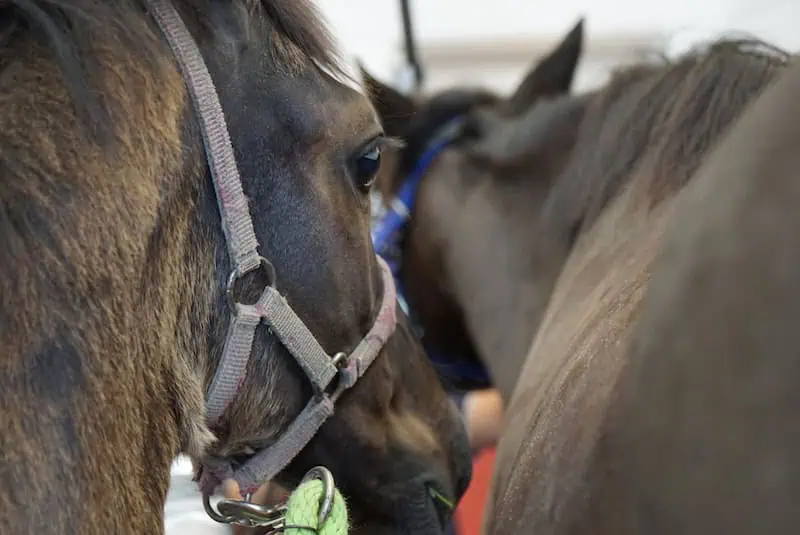Home » Examination and diagnosis » Prevention
Preventive veterinary care
Services provided by SMDC
Opening hours
- Mon - Fri : 8.00 AM - 5.30 PM
- Saturday : closed
- Sunday : closed
+ 31 (0)412 745500
Throughout its career, a sport horse is continuously exposed to physical and mental challenges: intensive training, competition, transport, and more. To sustainably support health and performance, structured veterinary care is essential—from pre-purchase and training buildup to maintenance and rehabilitation.
Start with a pre-purchase examination
A thorough pre-purchase examination is the ideal opportunity to gain insight into the horse’s history, health and future prospects. At SMDC, we combine a thorough clinical examination with extensive imaging (X-ray, ultrasound and, if necessary, CT, MRI and scintigraphic examination). Our experienced inspection veterinarians carry out a complete assessment of the horse’s condition, including a written report, videos and digital image storage.
The complete picture
A fit sport horse is more than just endurance. We assess the horse as a whole: muscles, tendons, ligaments, joints, nervous system, respiratory system, heart, and metabolism. A balanced training program prevents overload and supports tissue adaptation. For example, tendons adapt slowly, bone relatively quickly, and muscles at an intermediate rate. To properly load these tissues, it is important to consider conformation and any structural deviations. Optimizing the hooves and shoeing can make a positive contribution to this process.
To prevent muscle damage, it is important to include a proper warm-up and cool-down in training. Additionally, attention should be paid to the point at which fatigue or lactic acid buildup occurs, by providing timely recovery periods during exercise. To monitor this more precisely, tests using a heart rate monitor and lactate measurements are performed. Recommendations on training, nutrition, and supplements are an integral part of our approach.
Certain within its own body
One of the most important, and often overlooked, factors is the nervous system. Good coordination means that the horse can perform a movement at the right moment, smoothly, and with the appropriate force and speed, while also being able to control, slow down, and stabilize its body.
A horse that moves correctly and understands how to use its body (knows what it is doing and can perform as expected) has a lower risk of injury compared to an uncoordinated horse, which is at significantly higher risk for tendon and ligament injuries. Coordination can be trained, but it is even more important to prevent damage to the nervous system. This includes protecting the brain and the spinal cord, which originates in the brain and extends through the entire vertebral canal.
Causes of problems
Sudden, high-impact forces (for example, hanging in a halter or falling) on the spine can lead to acute problems, which are sometimes recognized only later. In practice, we often see horses with injuries to the (cervical) spine, where damage to the spinal cord and/or exiting nerves has occurred, resulting in reduced coordination.
The longer this type of injury persists, the longer it takes for the nervous system to recover. Disorders of the neck, back, or spinal cord can start subtly but have significant consequences. Early detection and treatment are crucial. With our expertise in spinal and neurological issues, we provide targeted guidance and, if necessary, additional diagnostic evaluation.
Respiratory system
The respiratory system is vulnerable to dust, fungi, and ventilation issues. Training, housing, and nutrition directly affect lung health. At SMDC, we combine clinical examination with imaging (endoscopy, ultrasonography) to detect and treat performance-limiting respiratory conditions in a timely manner.
Gastric issues are common in sport horses. Through gastroscopy , it is possible to identify the exact abnormality and determine the best way to address it for the horse.


The power of collaboration
We believe in collaboration. Through close coordination between the owner, rider, veterinarian, physiotherapist, farrier, and dentist, subtle changes can be recognized sooner and addressed appropriately. Recovery and rehabilitation programs are supported by imaging, clinical evaluation, and specialist consultation.
Through regular monitoring, clear communication, and specialist guidance, we help prevent injuries and optimize performance. Our veterinary care is proactive rather than reactive, focused on maintaining a healthy, strong, and motivated sport horse.
Have your horse checked preventively at SMDC?
Together with top specialists in their field, we provide thorough examinations and, if needed, treatment.
Please contact us to discuss the available options.
